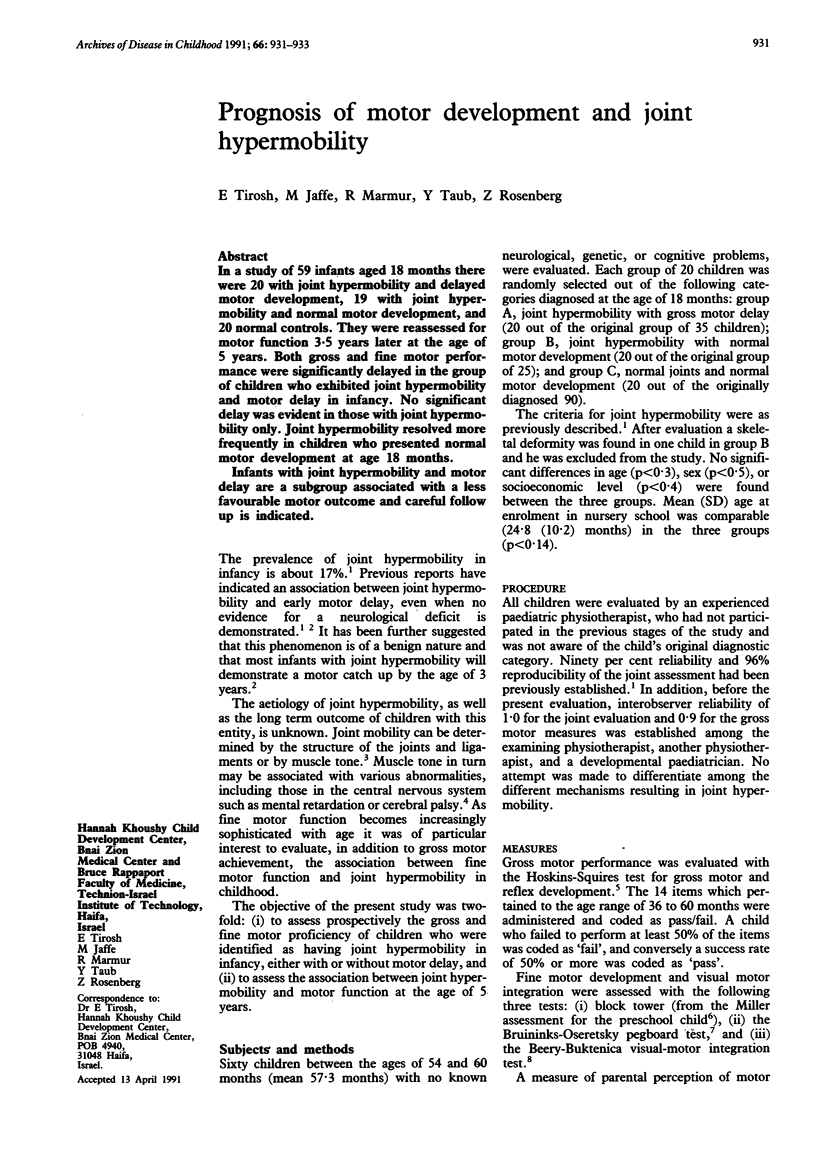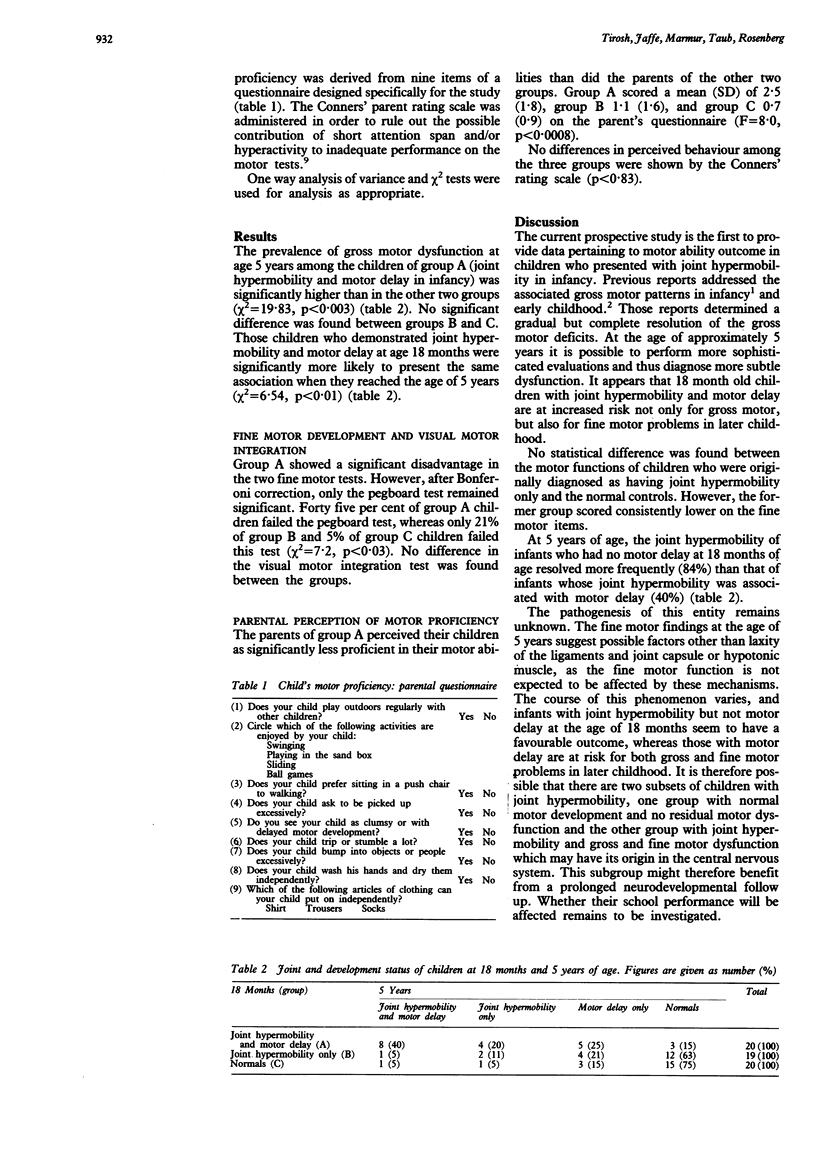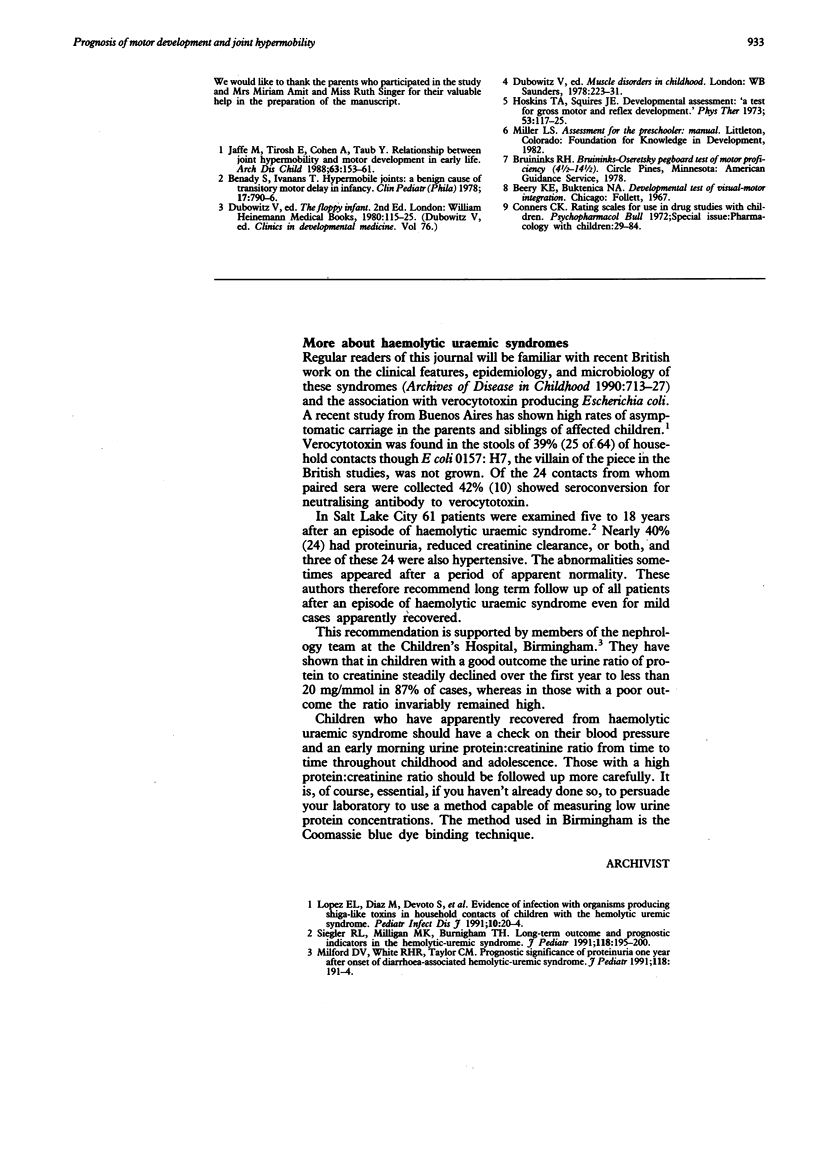Abstract
In a study of 59 infants aged 18 months there were 20 with joint hypermobility and delayed motor development, 19 with joint hypermobility and normal motor development, and 20 normal controls. They were reassessed for motor function 3.5 years later at the age of 5 years. Both gross and fine motor performance were significantly delayed in the group of children who exhibited joint hypermobility and motor delay in infancy. No significant delay was evident in those with joint hypermobility only. Joint hypermobility resolved more frequently in children who presented normal motor development at age 18 months. Infants with joint hypermobility and motor delay are a subgroup associated with a less favourable motor outcome and careful follow up is indicated.
Full text
PDF


Selected References
These references are in PubMed. This may not be the complete list of references from this article.
- Benady S., Ivanans T. Hypermobile jointes: a benign cause of transitory motor delay in infancy. Clin Pediatr (Phila) 1978 Oct;17(10):790,795-6. doi: 10.1177/000992287801701014. [DOI] [PubMed] [Google Scholar]
- Hoskins T. A., Squires J. E. Developmental assessment: a test for gross motor and reflex development. Phys Ther. 1973 Feb;53(2):117–126. doi: 10.1093/ptj/53.2.117. [DOI] [PubMed] [Google Scholar]
- Lopez E. L., Diaz M., Devoto S., Grinstein S., Woloj M., Murray B. E., Rubeglio E., Mendilaharzu F., Turco M., Vasquez M. Evidence of infection with organisms producing Shiga-like toxins in household contacts of children with the hemolytic uremic syndrome. Pediatr Infect Dis J. 1991 Jan;10(1):20–24. doi: 10.1097/00006454-199101000-00005. [DOI] [PubMed] [Google Scholar]
- Milford D. V., White R. H., Taylor C. M. Prognostic significance of proteinuria one year after onset of diarrhea-associated hemolytic-uremic syndrome. J Pediatr. 1991 Feb;118(2):191–194. doi: 10.1016/s0022-3476(05)80481-0. [DOI] [PubMed] [Google Scholar]
- Siegler R. L., Milligan M. K., Burningham T. H., Christofferson R. D., Chang S. Y., Jorde L. B. Long-term outcome and prognostic indicators in the hemolytic-uremic syndrome. J Pediatr. 1991 Feb;118(2):195–200. doi: 10.1016/s0022-3476(05)80482-2. [DOI] [PubMed] [Google Scholar]


